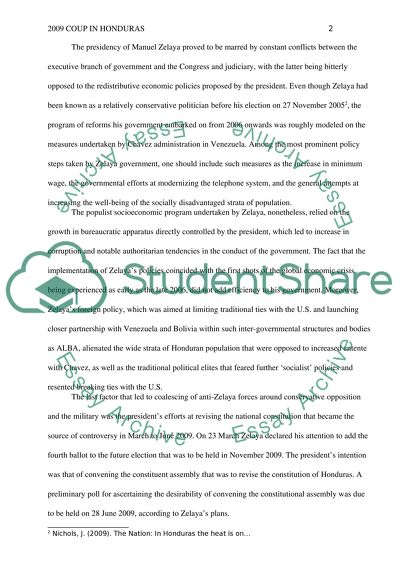Cite this document
(“Coup in Honduras of 2009 Research Paper Example | Topics and Well Written Essays - 1250 words”, n.d.)
Coup in Honduras of 2009 Research Paper Example | Topics and Well Written Essays - 1250 words. Retrieved from https://studentshare.org/history/1447486-2009-coup-in-honduras
Coup in Honduras of 2009 Research Paper Example | Topics and Well Written Essays - 1250 words. Retrieved from https://studentshare.org/history/1447486-2009-coup-in-honduras
(Coup in Honduras of 2009 Research Paper Example | Topics and Well Written Essays - 1250 Words)
Coup in Honduras of 2009 Research Paper Example | Topics and Well Written Essays - 1250 Words. https://studentshare.org/history/1447486-2009-coup-in-honduras.
Coup in Honduras of 2009 Research Paper Example | Topics and Well Written Essays - 1250 Words. https://studentshare.org/history/1447486-2009-coup-in-honduras.
“Coup in Honduras of 2009 Research Paper Example | Topics and Well Written Essays - 1250 Words”, n.d. https://studentshare.org/history/1447486-2009-coup-in-honduras.


